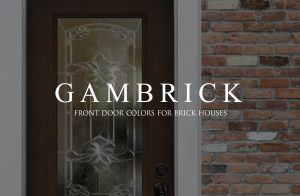Why Is Handmade Soap So Expensive?
Handmade soaps are so expensive because the ingredients used to make them are better, batches are smaller and they don’t contain harsh chemicals or detergents. Most commercial soaps are actually cleansers which contain chemicals that clean the skin. But they’re not actually soap. During the manufacturing process, healthy ingredients like glycerine are stripped out of commercial soaps and used in other more expensive beauty products. But when you buy handmade soap the glycerine is left in, which nourishes the skin as you wash.
Handmade soaps are made from better, more natural ingredients than commercial soaps. These include fats, lye and natural additives like oatmeal, coco, coarse salts, Shea butter and fragrances. Natural ingredients cost more than chemicals so the soap is more expensive.
Handmade soap is made by hand and not machines. This takes time and money which adds to the cost of every bar. The batches are smaller and are often wrapped in handmade packaging which also adds to the price.
Cheaper handmade soap generally costs around $7 per bar. But more expensive varieties can sell from $15 to $50. These high end handmade soaps contain some of the finest ingredients money can buy which are all natural and great for the skin. These may include essential oils and moisturizers which are hard to come by and expensive.
In this article we’ll discuss the handmade soap making process in detail and why the soap is so expensive.
Making Handmade Soap Is Expensive
Handmade soap is expensive to make because production runs are very small and ingredients are expensive. You need a pot, measuring equipment, fats, lye, molds, safety gear, packaging materials, fragrances, oils and lots of space. Those high costs are then passed onto the consumer by raising the price of every bar. Even making handmade soap at home can be expensive averaging a few dollars per bar for even a small batch when you factor in the cost of all the equipment.
Running a small soap-making business at home isn’t easy, Margins are tight and costs are high. But luckily there’s a big demand for handmade soap so if you make a good product there are buyers willing to pay the premium price.
In this article we’ll discuss the 11 reasons why handmade soap is so expensive which include:
- All natural ingredients
- It’s a premium product that contains glycerine
- Small batch sizes
- It’s made by hand not machines
- Limited supply vs high demand
- Shorter shelf-life than commercial soaps
- Takes a long time to make
- Expensive Fragrances
- It’s custom made
- Serves a variety of niches like strict vegans or those with sever skin allergies
- High demand
Handmade Soap Uses All Natural Ingredients
One of the main reasons why handmade soap is so expensive are the ingredients. Most handmade soaps use all natural organic ingredients instead of synthetic chemicals and preservatives. This makes them healthier to use and better for your skin but more expensive with a shorter shelf-life.
One of the main differences between commercial soap factories and handmade soap makers is that handmade soap makers use healthy ingredients. Handmade soaps are primarily made from natural fats and oils mixed with lye and other ingredients. But commercial soaps contain lots of synthetic chemicals and preservatives which bring down production costs and increase shelf-life.
Handmade soap is actual soap. But many commercial soaps aren’t soap at all, they’re a cleanser. During the soap making process, when fats are mixed with lye, glycerine is formed. It’s a clear liquid that’s very good for the skin. Commercial soap makers strip out the glycerine and replace it with chemical cleansers. But handmade soap makers leave it in.
Commercial soap makers often use detergents and other chemical cleansers in their soaps to make up for stripping out more expensive ingredients.
Many people are allergic to the detergents used in commercial soaps which is why they use handmade soap instead.
All natural ingredients are a lot more expensive than synthetic man made materials, chemicals, cleansers and detergents. This increase the cost of handmade soap quite a bit. But it also increases the quality and makes it safer to use.
Handmade soap is expensive because soap makers use more expensive all natural ingredients instead of chemicals, detergents and cleansers.
Handmade Soap Contains Glycerine
One of the benefits to using handmade soap is that it’s real soap which contains glycerine. handmade soap is made by mixing fats with lye. A chemical reaction occurs between the fat and lye which creates the soap. When the reaction is complete, you should have no excess fat and no lye, only soap. Use too much fat the the soap will be oily. Add too much lye and the soap will be caustic and may burn your skin.
One of the byproducts to this process is glycerine. It’s a clear liquid that’s very good for your skin.
Commercial soap makers remove the glycerine and replace it with cheaper moisturizers that make your skin feel moist, but they don;t actually nourish the skin like glycerine does. They then add the extracted glycerine into more expensive beauty products like skin creams.
In addition to removing the glycerine commercial soap makers also add in detergents, cleansers and chemicals. In fact many store bought soaps aren’t even technically soap, they’re detergents or skin cleansers.
When you buy handmade soaps the glycerine is usually left in and they don;t contain chemicals, detergents or cleansers. The soap is actually good for your skin and nourishes it as you wash.
Handmade soap is worth the money when it contains glycerine because it’s actually cleaning your skin and moisturizing it at the same time. This saves you the money you would have spent on expensive skin moisturizers that contain the glycerine which should have been in your soap.
Handmade soap is expensive because it’s a premium product that contains glycerine.
Handmade Soap Is Made In Small Batches
One of the reasons why handmade soap is so expensive is because it’s made in very small batches. By contrast, this is also one of the reasons why commercial soap is so cheap. When you mass produce a product you gain the benefit of bulk pricing for ingredients and labor.
Handmade soap is typically made by just one or two people and considered a boutique item. This means very small production runs which pass those costs onto the soap. Most handmade soaps you can buy are either sold online, in small shops or at high end retailers.
Because handmade soap companies are small and make limited amounts of soap at a time, the bars are more expensive. Large scale soap producers can make more product in a day then small companies can make in a year.
Because handmade soaps are made in limited quantities but the demand is high, the cost goes up. The average cost of a handmade bar of soap is around $7 per bar. But they can actually cost as high as $50. Compare those prices to commercial bar soap which average around $1 per bar.
The price of handmade soap has to pay for the soap’s production costs while hopefully make a profit. When production costs are high because of low volume, the cost per bar has to go up. Soap makers rely on selling a few expensive bars to make a living rather than selling millions of cheap bars of soap.
Handmade soap is expensive because they can’t produce as much product as commercial soap makers which means labor and ingredient costs are much higher per bar.
Handmade Soap Is Made By Hand
As the name suggests, each bar of handmade soap is actually made by hand. This is one of the main reasons why handmade soap is so costly. Contrast that with commercial bar soap that’s made in huge batches primarily by machines.
Machines are much cheaper to operate and make more soap in a lot less time. Making soap by hand is a slow process that takes time and effort. Fats, lye and additives are mixed together a batch at a time and then poured into molds to cure.
Making soap is a difficult skill to master. Each ingredient must be carefully measured and added to the mixture at the right time. Use too much lye or fats and the soap will either be too caustic or oily.
Curing must also be carefully watched because it produces heat. If the soap gets too hot the batch could be spoiled. If it cures too cool the soap won’t form the right consistency.
Machines make the process easier and cheaper because it’s an automated process. But with handmade soap each of these steps is done by a person. This kind of attention makes the soap much more expensive to produce.
Once the soap cures it’s then cut into individual bars and then wrapped. These steps are also done by hand and not by machines.
When soap is made in a factory, the skilled parts of the job are done by machines. But when it’s made at home, the parts of soap making that take skill, like measuring ingredients and monitoring heat, are done by a skilled soap-maker.
Since labor costs are higher with no automation, the price of handmade soap is also more expensive.
Handmade soap costs so much because handmade products are more time-consuming and expensive to make.
Handmade Soap Is Expensive Because There’s A Limited Supply
One of the biggest factors adding to the high price of handmade soap is the limited supply. Handmade soap is made slower and in smaller batches than commercial soaps because handmade soap-makers don’t have as much space and don’t use machines or automation.
Most handmade soap is made at home or in small workshops, not large factories. This means space, labor and resources are limited to just a batch or two at a time.
Small soap shops are usually limited on space. Bars of soap are produced and usually stored until they sell online a bar or two at a time. Small soap-makers generally don’t produce more product until the last batch is sold out. This is because handmade soap is usually all natural and goes bad quicker than commercial soaps which contain preservative chemicals.
To make handmade soap you need the following:
- A large soap pot
- Burners
- Molds and soap cutting equipment
- Mixing and measuring equipment including scales
- Storage for ingredients and finished bars
- Space to measure, mix, weigh, pour, etc.
- Areas for wrapping, cutting the bars and packaging the finished soap
Making handmade soap requires lots of space which limits how many bars a small company can make and store at a time.
A lack of skilled workers is another factor that limits supply to small batches. Most small handmade soap companies are just a person or two doing lots of jobs, so they can’t make as much product compared to larger companies.
The limited supply of handmade soap is actually one of it’s biggest appeals. It’s a boutique item of high quality made in small batches, which is something many people are willing to pay a premium for.
Handmade Soap Goes Bad Quicker Than Commercial Soaps
Handmade soap has a much shorter shelf life than commercial soaps which makes it more expensive. Commercial soaps contain chemical preservatives which greatly increase it’s shelf life. This brings down the cost because soap can be made and stored for years without worrying about spoiled product. But handmade soap is usually all natural which means it spoils much faster.
Because most handmade soap is all natural and goes bad faster than commercial soaps, it’s more expensive. Handmade soap manufacturers and retailers risk losing money on product that goes bad sitting on a shelf. That risk and potential loss is factored into the price of the soap and passed onto consumers.
An extra cost is added to every bar of handmade soap as a sort of insurance against product that may go bad.
Whether the soap-maker is producing handmade bath bombs or bars of soap, they generally go bad faster than commercial soap because handmade soaps don’t contain chemicals. On average, all natural handmade soap only lasts about 10% or less vs commercial soaps.
Handmade soap is generally all natural which means it’s made from organic materials and not synthetic chemicals. Organic materials degrade and spoil much faster than synthetic chemicals. This means less shelf-life and more risk.
Buyers of handmade soap generally don’t purchase large quantities at a time because it may go bad. The same is true of retailers who usually stock small quantities.
One of the reasons why many people love handmade soap and are willing to pay the high price tag is that it’s all natural. Since handmade soap is more expensive and doesn’t last as long, buyers tend to spend more on the soap per year vs commercial soap.
Handmade Soap Takes A Long Time To Make
Handmade soap is more expensive than commercial soap because it takes a long time to make. Soap-makers don’t use machines or automation to speed up the process like large soap factories do. The entire process is done by hand which takes time and attention. This added time combined with smaller batches increases production costs which is then passed onto the consumer.
The price of handmade soap is equal to its total production cost plus profit for the soap-maker and retailer. Since handmade soap takes longer to make, it costs more than factory mass-produced soaps.
There are many steps that need to be carefully followed in order for the soap to properly cure and form. If too much fat is used the soap will be oily. Use too little and it will be caustic.
Once the fats, lye and other ingredients are properly mixed, they’re poured into molds. Here they sit for weeks until fully cured. In this time heat is created because of the chemical reaction between the fats and lye. Too much heat and the soap could spoil. Too little and it won’t form properly. This is all monitored by the soap-maker and not machines.
Once soap is taken out of the mold, many soap makers let it continue to cure in the open air. This step helps solidify the soap.
Finally, the soap is hand cut into bars.
If anything goes wrong during the mixing or curing process, the soap-maker may not find out for weeks.
To ensure the soap is profitable, handmade soap is priced higher because of the time and risk involved.
Handmade soap is more expensive because of how long it takes to make.
Handmade Soap Contains Expensive Fragrances
Many handmade soaps are more expensive because they contain expensive and sometimes exotic fragrances. You can find handmade soaps made with almost any scent you can think of. And if you can’t find what you’re looking for, many custom handmade soap companies will make what you want for a price.
The fragrances used in many handmade soaps can be as expensive as what’s used to make high end perfumes and colognes.
Commercial soap companies generally produce soap in just a few standard scents. This helps them keep production costs down which allows them to sell at very low prices.
Because handmade soap is made in small batches with quality in mind rather than cost, soap-makers can experiment with a variety of scents. This increases the cost of the soap because more exotic fragrances are expensive and can be hard to find.
Buying fragrances in bulk brings down the cost. Scented oils can be expensive to buy when you purchase them in small quantities.
Because your body generally smells like the soap you use, the fragrance of your soap is important. If you want something different than the standard scent commercial soap makers use, handmade soaps are a great option.
Adding a special fragrance to soap increases production costs because scented oils are expensive. This is especially true if it’s a rare or unique fragrance that’s in limited supply or hard to find.
One of the reasons why handmade soap may cost more is because of the fragrances they use.
Handmade Soap Is So Expensive Because It’s Custom Made
Many handmade soaps are more expensive because they’re made using custom built molds. Commercial bar soap is made in a standard size and shape mold which makes each bar of soap exactly the same. But handmade soap is poured into custom built molds which can make the shape of the bar different every time. Molds are expensive to build so that cost is passed onto the consumer by raising the price of the soap.
When handmade soap is removed from the mold it’s then cut into individual soap bars. The thickness of each bar can be changed by the soap-maker.
Some handmade soap makers have fun with their molds and make a variety of shapes like hearts, shells, ovals, squares, etc.
Handmade soap can be made small for people with small hands or large for people with large hands. This kind of customization isn’t found with commercial soaps.
The problem with building custom molds is that it adds an additional expense that is then passed onto the consumer. This is why commercial soap factories use the same mold over and over again. It keeps the price of the soap low because they only pay for the molds once.
Standard size and shape soap molds can be purchased at craft stores or online. But most handmade soap-makers build their own molds because making custom soaps is part of the appeal.
Handmade soap is expensive because custom built molds increase the cost of production.
Handmade Soap Serve A Wide Variety Of Niches
Commercial soaps are designed for the mass market because soap factories make thousands of bars at a time. But handmade soap is made in much smaller batches so they can easily adjust the formula to serve a smaller niche market. Many niches exist among soap buyers like strict vegans or people with sever skin allergies. These consumers are better served by small soap-makers who can produce batches as small as a dozen bars at a time.
A good example of special handmade soaps are vegan soap bars. Vegan bars are harder to find on the mass market because most commercial soaps contain some animal byproducts or chemicals produced by testing on animals. But as a small soap-maker it’s easy to produce vegan soap because most handmade soaps are made from oils like coconut, palm or olive mixed with lye. They contain no animal byproducts and no chemicals.
Another niche market are people with sever skin allergies. Since handmade soap can be made with just oil and lye, there are no chemicals, fragrances or additives to be allergic too. All natural handmade soap is more natural and easier on the skin than commercial detergents and cleansers.
Because there are so many unique niches, you’ll find handmade soap-makers who make soap for those consumers. But these special small batches are more expensive to produce which increases the price of the soap.
Many types of handmade soap is expensive because it’s made in very small batches for a wide variety of niches.
Handmade Soap Is Expensive Because Of High Demand
A big reason why handmade soap is so expensive is high demand. Many handmade soaps are considered a premium beauty product and some people are willing to pay a high price to get them. High demand combined with low production helps drive the price up. In some cases a single bar of handmade soap can cost $50 with the average price hovering around $7 to $15 per bar. Contrast that with commercial bar soap that costs around $1 per bar.
More people each year are turning to handmade soap because of issues they have with commercially made products. The biggest factor being allergies.
Almost all commercial soaps contain chemicals, fragrances, detergents, cleansers, additives and synthetic materials. These are all things that can trigger a skin allergy. But handmade soap can be made all natural out of just lye and oils like coconut, palm or olive. Without additives, chemicals, fragrances, detergents, colors, cleansers or other potential allergens, they’re much safer on sensitive skin.
Part of the demand is due to the COVID-19 pandemic. The pandemic created a push towards more natural ingredients, healthier beauty products and cleaner hands. If you’re going to be washing your hands ore often, many consider it better to use a safer, more natural soap.
Overall, more people each year have an interest in natural, vegan or organic beauty products. And many handmade soaps fall into those categories.
Because demand is high, and supply is limited, handmade soap is more expensive.
Summary: Why Is Handmade Soap So Expensive?
Handmade soaps are so expensive because the ingredients used to make them are better, batches are smaller and they don’t contain harsh chemicals or detergents. Most commercial soaps are actually cleansers which contain chemicals that clean the skin. But they’re not actually soap. During the manufacturing process, healthy ingredients like glycerine are stripped out of commercial soaps and used in other more expensive beauty products. But when you buy handmade soap the glycerine is left in, which nourishes the skin as you wash.
Handmade soaps are made from better, more natural ingredients than commercial soaps. These include fats, lye and natural additives like oatmeal, coco, coarse salts, Shea butter and fragrances. Natural ingredients cost more than chemicals so the soap is more expensive.
Handmade soap is made by hand and not machines. This takes time and money which adds to the cost of every bar. The batches are smaller and are often wrapped in handmade packaging which also adds to the price.
Cheaper handmade soap generally costs around $7 per bar. But more expensive varieties can sell from $15 to $50. These high end handmade soaps contain some of the finest ingredients money can buy which are all natural and great for the skin. These may include essential oils and moisturizers which are hard to come by and expensive.
If you have any questions or comments about what makes handmade soap so expensive, email any time.
























